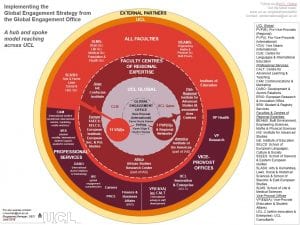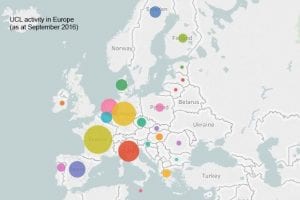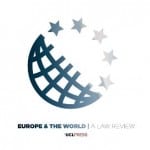 Conor is GEO’s Partnerships Manager for the Europe region. We asked him to share some key insights around Brexit.
Conor is GEO’s Partnerships Manager for the Europe region. We asked him to share some key insights around Brexit.
Q: How many European partnerships does UCL have? How is UCL taking forward its collaborations with European partners at the moment?
A: UCL has an exceptionally large number of partnerships across Europe. In terms of Erasmus+ alone, we have more than 450 agreements with over 250 institutions. If we also consider the, less formal, academic-to-academic, researcher-to-researcher partnerships there are simply too many to count.
Quite simply, following Dame Nicola’s unequivocal statement, we are taking things forward with a renewed vigour. In practical terms, this means being more active in researching opportunities and fostering warm relations with potential partners; making sure that the wider world knows that UCL remains open and receptive to creative ideas from top partners, new and old.
The fact that the Faculty of Engineering signed the Alliance4Tech partnership agreement with the Politecnico di Milano, TU Berlin and CentraleSupélec on the day of the Referendum result gives me reason to believe that, whilst the structures around our engagement might change, UCL’s reputation for excellence and drive to collaborate will endure.
Q: What support can UCL academics get from GEO around Brexit?
A: The Europe Regional Network remains GEO’s primary channel for support around all matters European and I would encourage anyone with an interest to sign up. Through this group, we disseminate information about the regional funding streams from GEO, as well as information on new developments.
As we look to reconsider our strategic approach to European partnerships, Professor Jan Kubik (Pro-Vice-Provost, Europe) and I are welcoming contributions from members. They can email me directly.

UCL’s ERASMUS+ Agreements in Europe by city
Q: How do you think Brexit might impact on UCL’s involvement in the Erasmus scheme?
A: At the moment, we are reviewing and renewing over 300 of our Erasmus agreements and that work will carry on. We will continue to host students from around Europe and will continue to offer excellent opportunities for our students to study abroad. It is clear to me that partners across Europe remain fully committed to working with us.
For our continued participation in the Erasmus scheme, I would hope that we are granted with non-EU programme status, like Norway. Some will look at the Swiss situation for a precedent, where they were suspended from full engagement in the Erasmus scheme following a 2014 referendum on free movement of people, but I think this might be a pessimistic comparison. The scale is completely different; in 2013/14, the UK received over 27,000 students, compared to around 4,000 to Switzerland and, in light of that, I suspect that there will be pressure, from both the UK and remaining EU states, to retain the UK as a full member.
Q: UCL is the most successful university in Europe for attracting Horizon 2020 funding. What impact do you think Brexit might have on this?
A: UCL’s researchers, supported by the ERIO team, have been incredibly successful and ensuring this continues has got to be a key consideration. It is too early to speak of the impact of Brexit on H2020; we are full members and the judging criteria have not changed. Post-Brexit, given the incredible depth and breadth of research capability in the UK, we may yet remain as an associated member of H2020, in a similar model to Norway.
The lack of clarity around our future engagement in H2020 is a risk that precedes Brexit and will not be resolved until well into the exit negotiations. That lack of clarity might make some colleagues in Europe slightly hesitant to involve UK academics in a joint bid but our proven success record in attracting H2020 funding should mean that is a very rare occurrence.
Q: How is UCL currently working with the wider sector?
A: As one would expect, UCL is working in concert with the key voices in sector. Our key European affiliation, the League of European Research Universities, has just published a very welcome statement, reaffirming its intentions to work with UK universities. Likewise, we will continue lobbying Government through the Russell Group and UUK. The Vice-Provost (Research)’s office have been co-ordinating contributions back to the Science and Technology Committee and the Foreign Affairs Committee.
As Partnership Manager for Europe, Conor helps develop collaborative projects from inception through to delivery. He can also provide strategic guidance for ERASMUS+ activities, including student mobility and funding bids.
Contact Conor on:
c.rickford@ucl.ac.uk
+44 (0)20 3108 7785 / internal 57785
 Close
Close


 Oliver is a Research Coordinator at the
Oliver is a Research Coordinator at the 




